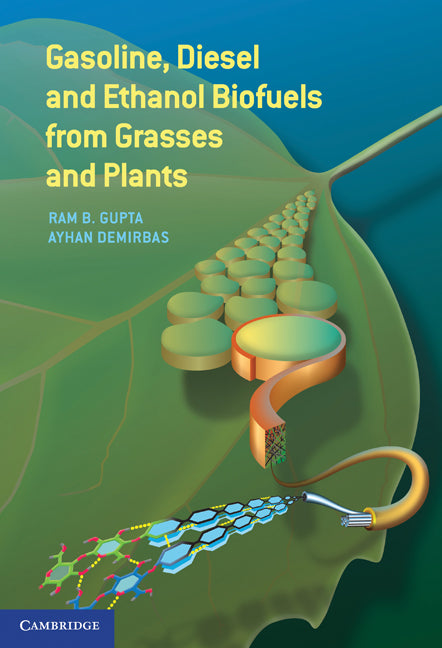Freshly Printed - allow 8 days lead
Couldn't load pickup availability
Gasoline, Diesel, and Ethanol Biofuels from Grasses and Plants
This book introduces readers to second-generation biofuels obtained from non-food biomass, such as forest residue, agricultural residue, and waste wood.
Ram B. Gupta (Author), Ayhan Demirbas (Author)
9780521763998, Cambridge University Press
Hardback, published 19 April 2010
246 pages, 104 b/w illus. 83 tables
26 x 18.1 x 2 cm, 0.67 kg
The world is currently faced with two significant problems: fossil fuel depletion and environmental degradation, which are continuously being exacerbated due to increasing global energy consumption. As a substitute for petroleum, renewable fuels have been receiving increasing attention due a variety of environmental, economic, and societal benefits. The first-generation biofuels - ethanol from sugar or corn and biodiesel from vegetable oils - are already on the market. The goal of this book is to introduce readers to second-generation biofuels obtained from non-food biomass, such as forest residue, agricultural residue, switch grass, corn stover, waste wood, municipal solid wastes, and so on. Various technologies are discussed, including cellulosic ethanol, biomass gasification, synthesis of diesel and gasoline, bio-crude by hydrothermal liquefaction, bio-oil by fast pyrolysis, and the upgradation of biofuel. This book strives to serve as a comprehensive document presenting various technological pathways and environmental and economic issues related to biofuels.
1. Introduction
2. Air pollution and global warming from the use of fossil fuels
3. Renewable energy sources
4. Biomass availability in the world
5. Conventional ethanol production from corn and sugarcane
6. Ethanol from biomass by fermentation
7. Biodiesel from vegetable oils
8. Diesel from biomass gasification followed by FT synthesis
9. Bio-oil from biomass pyrolysis
10. Bio-crude from biomass hydrothermal liquefaction
11. Solar and wind energy for biofuel production
12. Environmental impacts of biofuels
13. Economic impact of biofuels
14. Biofuel policy.
Subject Areas: Alternative & renewable energy sources & technology [THX], Heat transfer processes [THN], Energy technology & engineering [TH], Timber & wood processing [TDJ], Conservation of the environment [RNK], Waste management [RNH]


